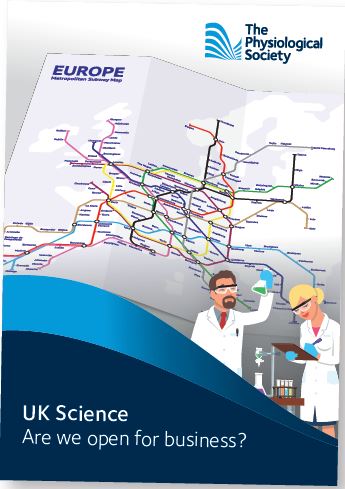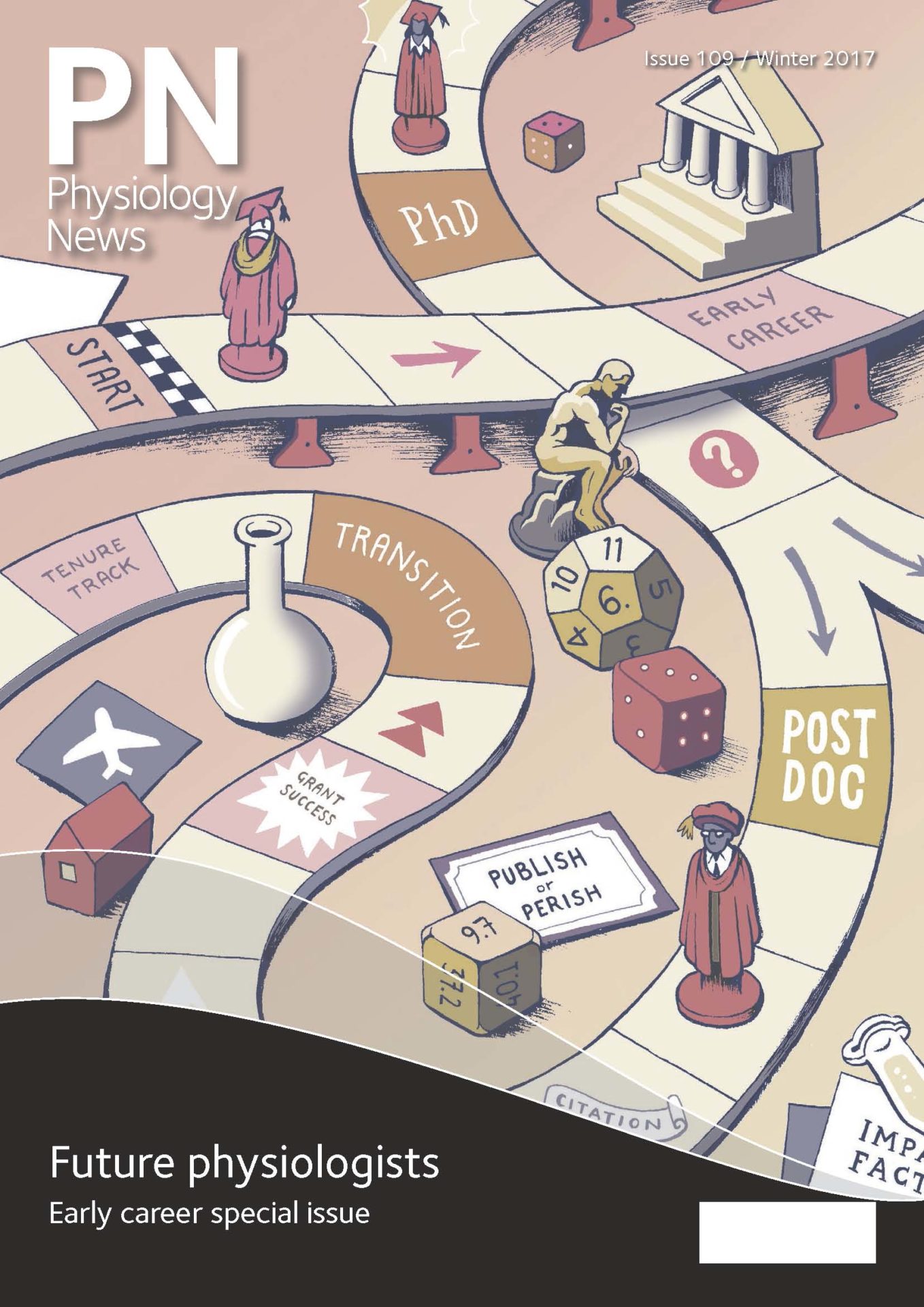
Physiology News Magazine
Policy Focus
News and Views
Policy Focus
News and Views
Henry Lovett
Policy and Public Affairs Officer, The Physiological Society
https://doi.org/10.36866/pn.109.7
Brexit already causing problems – Policy team highlights the issue to politicians
As the negotiating process around Brexit grinds on, both between the United Kingdom and the European Union, and domestically throughout British politics, the level of uncertainty around the outcome only seems to be rising. While we have not left the bloc, and will not do so until March 2019 (at the earliest), this uncertainty is already impacting upon people and industries in the UK. The science sector was fairly united in wishing to remain in the EU. However, the vote was to leave, so now the aims of the sector are to make both the process and outcome of leaving the EU as smooth and trouble-free as possible, and to benefit from the opportunities presented by a new regulatory regime.
It is heartening that the government has recognised the importance of science, technology and innovation to the UK, and statements put out show the intention to make the UK one of the world’s brightest science hotspots. This support is welcome, but has not translated into definitive reassurances about the nature of the future working relationship with the EU, and the rights of foreign scientists in the UK. It is understandable that the government cannot prejudice negotiations by making unilateral promises, but they must also be aware of the impact of their drip-feed of information on the situation back home.
Scientists, universities and companies are already feeling the effects of the Brexit vote. The Society has reached out to its Members to hear their stories of problems faced due to Brexit uncertainty. These case studies, along with supporting information on the views of scientists and the public, have been published in a booklet, available on our website, which highlights the negative effects of this uncertainty with real stories and real faces. Some of the problems that Society members have been facing include:
- Having to cancel EU funding applications as the term of the grant would go past our EU leaving date.
- Job offers being turned down by EU researchers, including one describing the UK as ‘not truly open for scientific business’.
- The weak pound making purchases from overseas much more expensive.
- EU researchers not seeking new jobs or contract extensions in the UK.
- Cross-border collaborations between Northern Ireland and the Republic of Ireland being cancelled over the particular uncertainty of the Irish situation.
The principal cause of the worries felt by EU citizens over the viability of their future life and work in the UK is the impression given by our government of a likely ‘hard Brexit’ outcome, or even no deal being reached.
We have been using these case studies to underline their message to politicians. The recent party conferences provided the perfect opportunity to reach out to MPs and explain the difficulties being faced by scientists. We have met with politicians from all parties to put across our message, and have given the booklet of case studies to the science minister, Rt Hon Jo Johnson MP. Other organisations from across the science sector are reporting similar situations faced within their disciplines. Hopefully the strength of these united messages will catalyse the efforts of the government to give tangible reassurance to scientists about the support they will receive over the course of the Brexit process, and to EU nationals about Britain’s desire for them to stay in the UK. This would be a positive way to help one of the UK’s key sectors and display some good faith to the valued foreign nationals who contribute their efforts to it.

